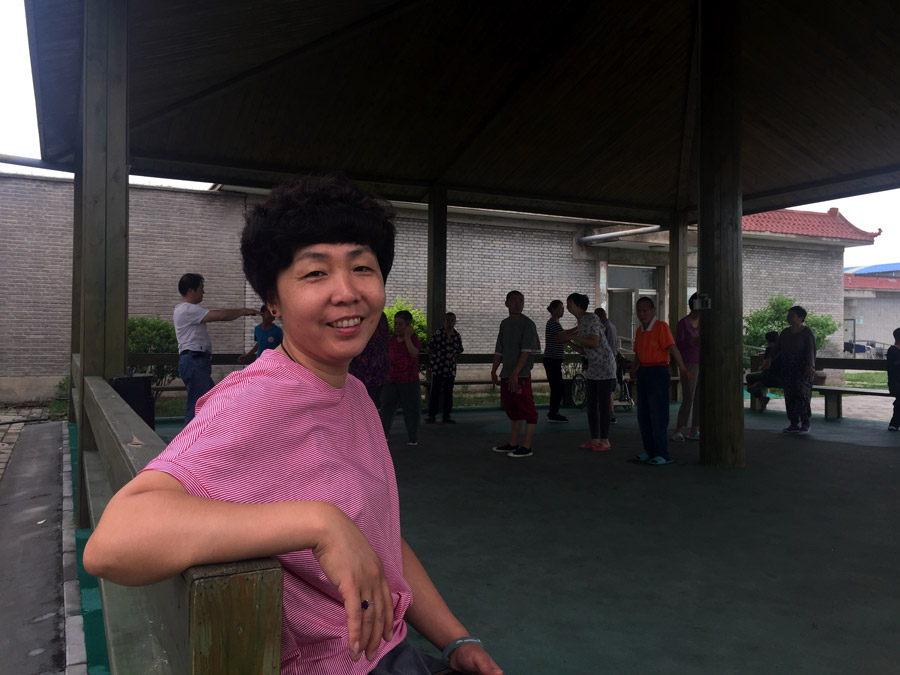Uncertain future looms for middle-aged people with Down syndrome


Desperate measures
In May last year, an 83-year-old woman surnamed Huang in Guangzhou drugged her 46-year-old son, who had Down syndrome, and strangled him. She then surrendered to police, saying her son was diagnosed with the condition when he was born and she constantly feared for him.
Huang was charged with homicide. "I was worried that I would die before him," she told the court, according to media reports. "I thought deeply for about a week and had the idea of giving him pills, allowing him to die peacefully without pain."
Meng, who followed the case closely, said she understood Huang's behavior because the same thoughts had occurred to her.
"I sometimes thought it would be better for my son to die. At least that would mean people could not treat him badly," she said. "He can't express himself and I need to pay close attention to him every day in case he falls ill."
She has become an expert on Down syndrome, and has developed ways of caring for Guo, but she cannot be with him all the time because she works part time to earn extra money to pay for his rehabilitation training.
At one point, Guo was sent to live at a school for students with mental disabilities, but he became upset and his health deteriorated. His unhappiness was obvious when he visited his mother for a week.
"He was such a cute boy, but when he came back from the school, he didn't speak a word and just sat motionless," Meng recalled.
The experience made her wary of sending Guo away again, so from the age of 18 until 30 he stayed home, and Meng prepared lunch for him before she left for work every day.
Now, Guo spends most days at a work therapy station, a day care center established by the Guangzhou government to provide mentally disabled people with opportunities to make handcrafted goods.
However, there aren't enough of these centers to meet demand, and one of the main reasons is a lack of government funding, according to Zhang Baolin, chairman of the China Association of Persons with Intellectual Disability and their Relatives.
"Most government funding for the mentally disabled targets the education and rehabilitation of teenagers, while in fact middle-aged people and seniors need more care and attention," he said.
Zhu Weisheng, who has Down syndrome, is also a frequent visitor to the work therapy station in Guangzhou. Ma Jieyun, his mother, has had to show the 35-year-old the short route from their home to the center many times.
"It takes him half an hour to walk a distance we would cover in about 10 minutes," she said.
Before Ma retired, Zhu was cared for by his grandmother. Although the elderly lady was his constant companion for about 20 years, Zhu showed no emotion when she died.
"As a child he seldom did any of the sweet things that kids normally do, but we grew used to it," Ma said.
Aging population
In addition to providing day care, many elderly parents are desperate to ensure their children will have a place to live when they are no longer around to help.
According to statistics from the National Down Syndrome Society in the United States advances in clinical treatment mean about 80 percent of adults with the condition reach the age of 60, and many live longer.
The rise in the number of older people with mental disabilities presents a growing problem, according to Zhang, who said most are cared for by their families, but only those with the most severe disabilities are eligible for State benefits.
However, benefits vary by region, so mentally disabled people in the country's eastern areas receive 800 yuan ($125) a month, while those in western areas get 300 yuan.
In most cases, these people will be left alone when their parents die.
Zhang, who has a 40-year-old mentally disabled daughter, believes "double fostering" - where elderly parents and their children are cared for in the same place - could provide a solution.
"But there are not enough institutions to meet the huge demand; a lot of areas don't even have one establishment for mentally disabled people," he said, adding that a lack of professional nursing staff members also poses problems for centers dealing with older patients.
"Parents carry the whole burden, but sooner or later they won't be able to carry on."
























